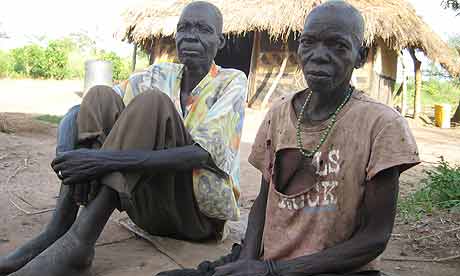This is crunch time for a lot of our projects because the rains are coming. Last year it was late November but the signs are showing early rains. Right now is the best time to dig wells and pit latrines because the water level is at its lowest but the holes have to be lined before the rains or else all you'll have is a gross muddy mess. Right now we are building latrines at two schools that had no toilets had all (imagine 1600 students without shoes using a bamboo area and then sitting back down on the floor in the classroom) -- so we have 24 toilets to build before the rains. We also just received funding for a river diversion project in Namasalima (where we rebuilt the dike last year) because the natural flow of the water has been blocked and it's flowing up against the dike, causing damage -- so we're starting that on Monday to finish before the rains. And then there are various other projects that will become next to impossible once the rains come. So, this is crunch time.
People are also busy digging in their gardens, getting them ready for planting. And this is the time for construction -- people are making bricks and building houses everywhere, hoping to have a dry place to sleep soon.
We have also enjoyed some time with Andre's parents, who visited us here in Malawi for 2.5 weeks. We showed them some of our projects and also took the opportunity to see some sights and visit the lake.






